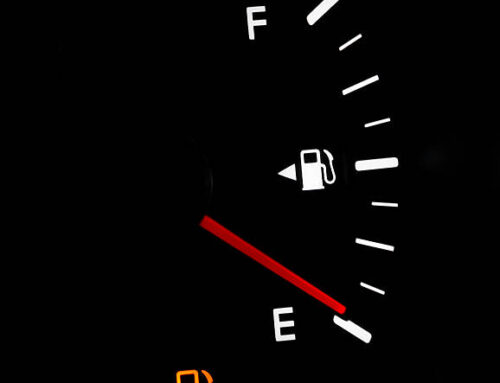By Joe Kapitan.
When I was nineteen and twenty, I worked summers at one of those greenhouse/garden center places in the suburbs southwest of Cleveland. It was modest pay in return for being outdoors, watering flats of petunias, hefting bags of mulch into trunks and farmer-tanning and flirting with the cashier girls in their halter tops and short-shorts. It was modest pay in return for the clandestine drinking of Rolling Rock from emerald-green cans kept chilly in a buried Styrofoam cooler, its lid camouflaged with clumps of dried grass hidden between the tarp-covered greenhouse frames.
A rehabbing burnout named Dale fixed small engines out of a rented shop located in the basement of the main barn, directly underneath the store. The old man who owned the whole place tolerated Dale because he paid his rent. The old man saved his hate for the small flock of urban pigeons that was trying to colonize the property, so he had no problem with Dale’s air rifle going off at closing time.
I had nothing in common with Dale. He’d flunked out of regular high school but stumbled upon vocational school, found small-engine repair like some people find Jesus. Found it understandable, anyway. Gas mixes with air and explodes in a controlled chamber. Gas tank, gas filter. Air filter, carburetor. Starter cord and a spark plug to provide the ignition. Oil chamber to lubricate the parts, drain plug, and a transmission that turns piston action into blade rotation. All that information plus the THC from the inhaled weed smoke wasn’t so much that it couldn’t fit inside Dale’s skull, beneath all the greasy blond hair. But he was confident in what he knew, which put him slightly ahead of me. To Dale, I was a college boy who didn’t deserve (or have a clue ) what he had. Translated to gun-speak, the most I’d ever done was plink tin cans at Boy Scout camp, years ago. Dale, however, could take out pigeons with a single shot, and had the blessing of the old man.
One evening, at sundown, Dale handed me his Browning .22. “Get that one over there,” he said. He pointed to a white pigeon with gray wings, pecking in the grit on the asphalt driveway. I aimed, I shot. The pigeon jerked sideways and tried to fly, but flopped back down on one side. It stood back up, tried again, flopped again. Its left wing dragged on the ground, useless. It was now a pedestrian. I was nauseous with the bird’s flailings.
“Let me have another shot,” I said. I wanted to end the misery.
“No way,” Dale answered. “Only one shot, College.”
Dale would never let me touch the Browning again. He wouldn’t shoot the walker pigeon himself either. He’d just laugh and point to it, stumbling around, and say, “Hey, Hey College, there’s your little buddy over there!” Once in a while I’d leave a fistful of grass seed for the white pigeon, and when Dale caught me doing it, he called me a pussy.
The following summer I moved on. I joined the Teamsters local and got a better-paying job driving forklifts and loading 53-foot semi-trailers at the Seaway Foods warehouse in Bedford Heights (before Seaway got swallowed up by Sysco Foods). There, I befriended a bunch of the old-timers, the senior operators who trained me. One guy, an aging black man named Terrence, stocky and quiet, cornered me in the break room one day.
“You going to college?” he asked.
“Yup, one more year left,” I said.
Terrence stared at me, with an expression that could bend spoons. “If I see you back here next summer,” he said, “I will personally kick your skinny white ass.” Not a threat at all, I realized, but friendly advice. Keep moving ahead, son. No rest, no rust. No returning. A modern urban take on “Go west, young man” — the long-favorite saying of those who wouldn’t go, couldn’t go themselves.
Once in a while I’d climb into the car and drive past the old garden center while it was still in business, before the old man sold the property to the car dealership next door, before the rows of flowering perennials were replaced by rows of Chevy Cavaliers, and I’d wonder what became of you, Dale. Was there a Terrence, someone to tell you that the garden center shutting down wasn’t a bad thing; that it could actually be the best thing that ever happened to you?
I’ll never know, so I’ll craft an ending that suits me. You never gatewayed into heroin. You didn’t max out your life in a tiny, rented mower shop. I want to believe that, if you had it to do over again, you’d have let me keep the Browning another ten seconds, and I would have made things right.
Joe Kapitan is a Cleveland architect and writer.
Top image: Karin McKenna







Nice work, Joe.
Thanks for reading, Mike.